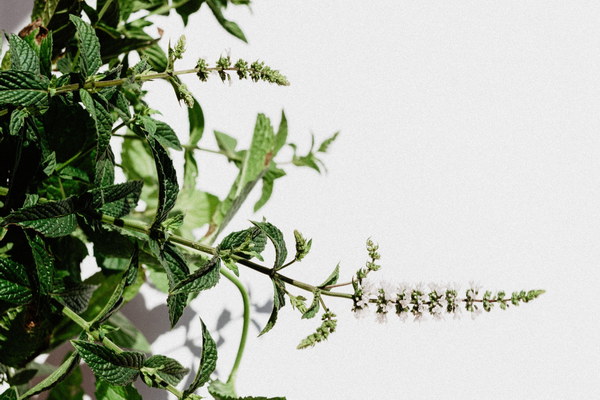Natural Lung Decongestion Exploring Traditional Chinese Herbs for Cold in the Lungs
The respiratory system is a complex network of organs and tissues responsible for the exchange of oxygen and carbon dioxide in the body. One of its key components is the lungs, which can sometimes be affected by various conditions, including colds. In traditional Chinese medicine (TCM), coldness in the lungs is often treated with natural herbs that help to clear the respiratory tract and alleviate symptoms. This article explores some of the most effective TCM herbs for clearing lung coldness, offering a holistic approach to respiratory wellness.
1. Platycodon grandiflorus (Huangqin)

Also known as Chinese bellflower, Platycodon grandiflorus is a popular herb in TCM for treating respiratory issues, including lung coldness. This herb helps to disperse coldness, drain dampness, and alleviate coughs with phlegm. It is often combined with other herbs to enhance its therapeutic effects.
2. Scutellaria baicalensis (Huanglian)
Scutellaria baicalensis, or baical Skullcap, is another essential herb for treating lung coldness. It possesses cooling and drying properties that help to clear heat and dampness, making it an excellent choice for respiratory conditions characterized by phlegm and coughs. Huanglian is often used in conjunction with other herbs like Platycodon grandiflorus and Forsythia suspense to synergistically improve lung function.
3. Forsythia suspensa (Lianqiao)
Forsythia suspensa, or forthyia fruit, is a commonly used TCM herb for its cooling and dispersing properties. It is particularly effective in treating lung coldness, as it helps to eliminate heat and phlegm, thereby alleviating coughs and reducing inflammation. When combined with other herbs, such as Platycodon grandiflorus and Scutellaria baicalensis, Forsythia suspensa can provide a comprehensive approach to respiratory wellness.
4. Angelica dahurica (Bai Zhi)
Angelica dahurica, or Chinese angelica, is a versatile herb known for its ability to expel coldness and relieve pain. In TCM, it is often used to treat lung coldness, as it helps to open the lungs and clear phlegm. When combined with other herbs, such as Platycodon grandiflorus and Scutellaria baicalensis, Angelica dahurica can help to alleviate coughs, chest tightness, and other respiratory symptoms.
5. Glycyrrhiza uralensis (Gancao)
Glycyrrhiza uralensis, or licorice root, is a well-known TCM herb that has a sweet, soothing effect on the respiratory system. It is often used to balance the other herbs in a formula, as it helps to mitigate their potential side effects and enhance their therapeutic benefits. In the context of lung coldness, Gancao can help to reduce coughing, clear phlegm, and improve overall respiratory function.
Incorporating these traditional Chinese herbs into your wellness routine can offer a natural, holistic approach to clearing lung coldness and alleviating associated symptoms. However, it is essential to consult with a qualified TCM practitioner before starting any new treatment, as individual needs may vary. By combining these herbs with proper diet, exercise, and rest, you can take a proactive approach to maintaining a healthy respiratory system.









